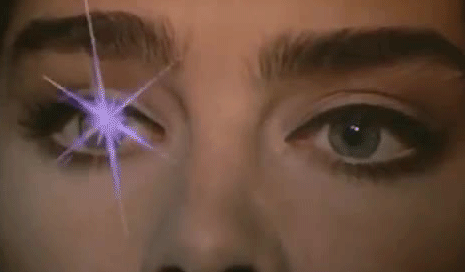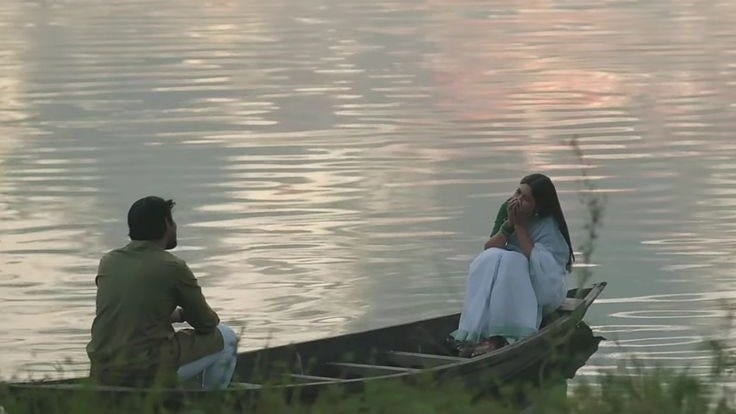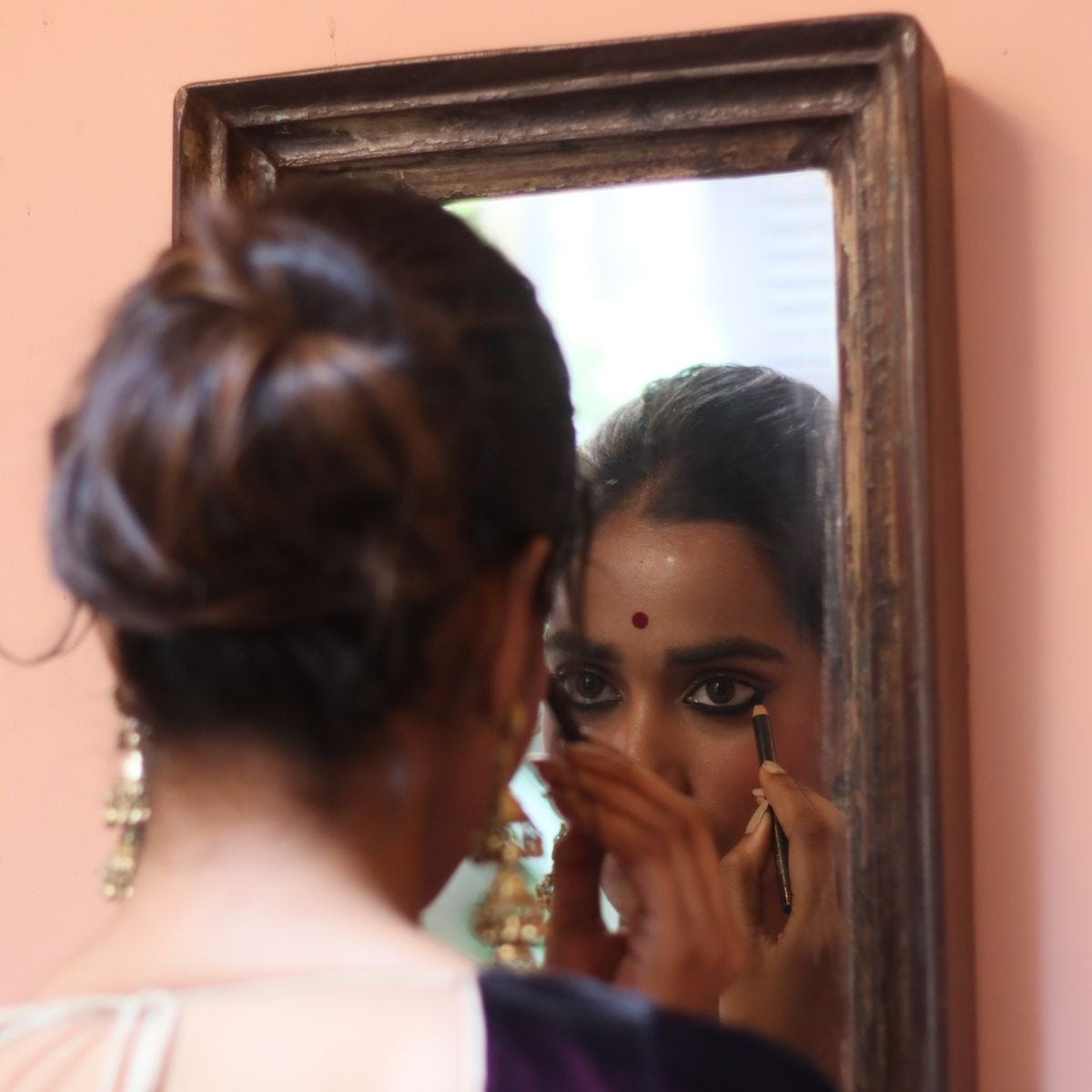Maybe if we winked more, we’d be a lot more happy.
Coquettish-ness with people, with life, and the unseriously flirty nature of existence has been lost. The wink is a mere indicator of the broader decline of the harmless flirt and the lack of sexiness in the everyday.
What we don’t realize is that the hunger that we have for sex might just be misdirection from the loss of the wink. Romantic frustration is not new to anyone in the modern digital age, but we have lost all that is unexpected and naughty about winking without pretense. Across the room, across the bar, across an unforgiving fortress of friends that could intercept the interaction at any moment — forcing a vehement denial from the winker and aghastness from the winkee. We have lost it all, truly, and I miss it.
Now, this isn’t to just dwindle it all to internet-culture, as if the internet single-handedly eradicated winking.
You would love that wouldn’t you ;)
We must take some blame too - for being greedy with our ambitions when the pools seemingly got bigger online. Dating app culture makes us think either 1) that everything is infinite (options, time, love, people) or 2) that we are going to die hopelessly alone.
Winking will save us!
Romantic and platonic senses alike, winking is the barrier that makes everything seem okay. It is forgiveness and grace when you say something terribly wrong. It is an extra heartbeat when the room feels like just warm bodies and noise. It is a morse code between two patrons who cannot glance away.
Even more unruly about a wink is its deniability.
“No I didn’t!”
“Oh, yes you most certainly did (I think).”
It is easily manipulated, a wink, into nonexistence for even the parties involved. Intentionality is difficult to presume at times. Nothing remains as witness but a feeling and a confession becoming. For nothing can resolve the unsatiated wondering surrounding a wink than a confession.
We are missing out on mischief in a bottle! It has become a relic, a lost treasure buried beneath the weight of ironic texting and digital courtship. We’ve made the fatal mistake of prioritizing certainty over play. Proof must be brought to high court of desire and want - a sense of clarity found in evidentiary screenshots and one-off texts.
The Wink? Well, it is ungovernable. Fleeting. Existential and questioning.
Maybe the wink is deeper than we think.
on desire
We want certainty, so we don’t have desire.
In The Agony of Eros, Byung-Chul Han laments the erosion of true desire, a hunger that can only exist in the presence of uncertainty and the presence of absence. Desire, he says, is not a placid mirror reflecting ourselves but an ache reaching towards what we do not know.
In short, we’ve lost our yearners!
We want seamless! An integration into our daily lives that is nothing but an extension of our very own identity and affirming our very own self. The risk of rejection is smoothed over by the illusion of endless possibilities, and there lies Eros carving holes into his coffin.
Eros demands a displacement of ego, and an engagement with what Han calls, the Other. Han mourns the disappearance of the Other, a unknowable, irreducible presence that exists outside the self that resists being fully assimilated or grasped. A fundamental mystery, a pre-ordained gap, the Other is not just a person but the very experience of encountering someone beyond the self’s control.
Love, rather than being transformative and destabilizing, has become a form of self-consumption where we don’t truly meet an Other but just version of ourselves reflected. Without the presence of the Other, desire collapses in its self reference.
There is nothing left to pursue and no agony in the uncertainty that makes longing meaningful. Eros is suffering, and we have done practically everything in our power to eliminate it.
We are frictionless now, but at what cost?
The world no longer winks because it no longer dares to truly want.
on efficiency
In the age of technocapitalism, winking is inefficient.
It is not measurable, immediate, nor transactionally clear. It has subtext and nuance and ambiguity that exists at the margins of what is acceptable and productive. There is not clear return on a wink, and in an age where everything is optimized for speed, clarity, and conversion, the wink is wasteful.
Moreover, we are in the age of the monetization of communication and on a more frightening level, interaction itself. The global online dating industry is valued at $9.65 billion (2023), optimizing on conversion and clarity of connection. Impressions, comments, and shares on social media warp exchanges into “engagement”. To think that the wink went away because of a social fad is just glazing the surface on the broader structures at play that have suppressed the dilly-dally of the wink in favor of quantifying your baby-making potential.
The broader question that They ask is: how do we commodify the Wink?
The short answer is you can’t.
To wink is not just to play: it is to resist.
The thing about flirting with the universe, with people, and with life is it’s about ambiguity.
“Did that mean something?,” you ask.
“Am I imagining things?,” they answer.
And yet, here we are, trading in our mystery when we could be living in the infuriating ephemerality that makes everything worth remembering.
We are over-explained and endlessly waiting for a jolt. A wink gives us permission to be unserious. It’s a crack in the monotony, a secret joke with the universe. It reminds us of our undoings and jest - a respite from it all.
The solution is to wink more. Nothing else. In grocery stores, in terrifyingly overflowing rooms full of people we know, and to each other when everything gets all too much.
The world goes round. We smile back.
The kids are winking again.







never thought winking could be so deep ;)